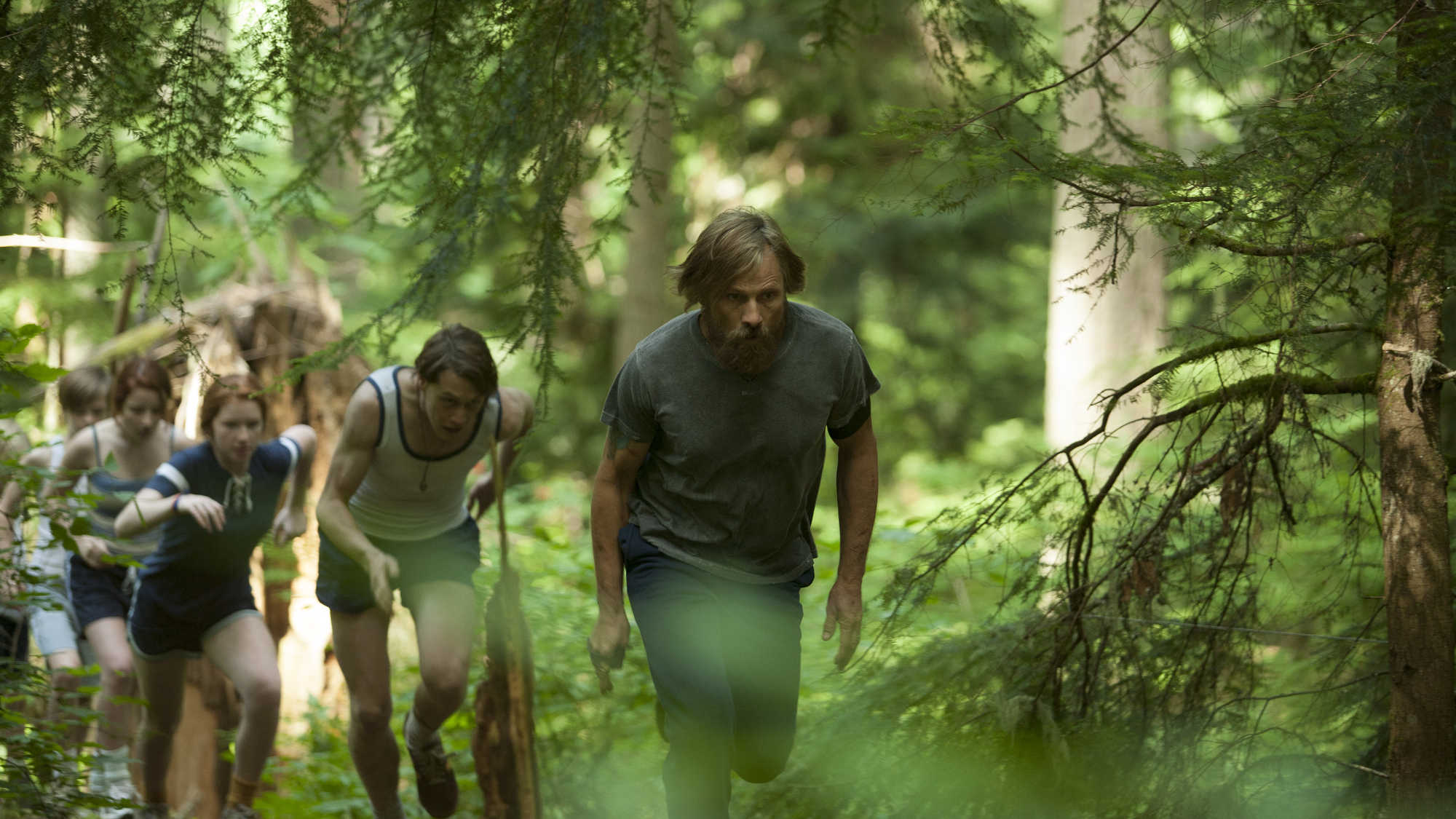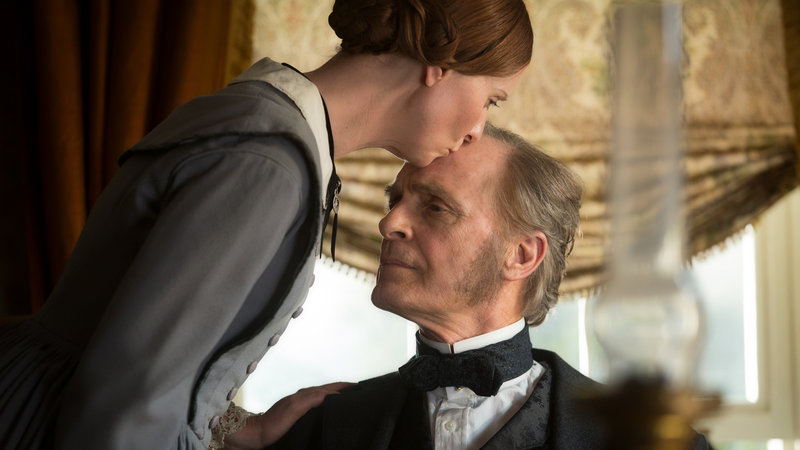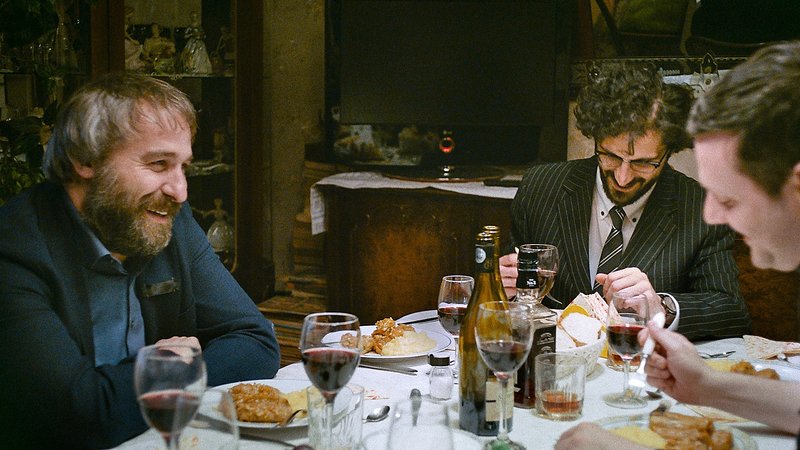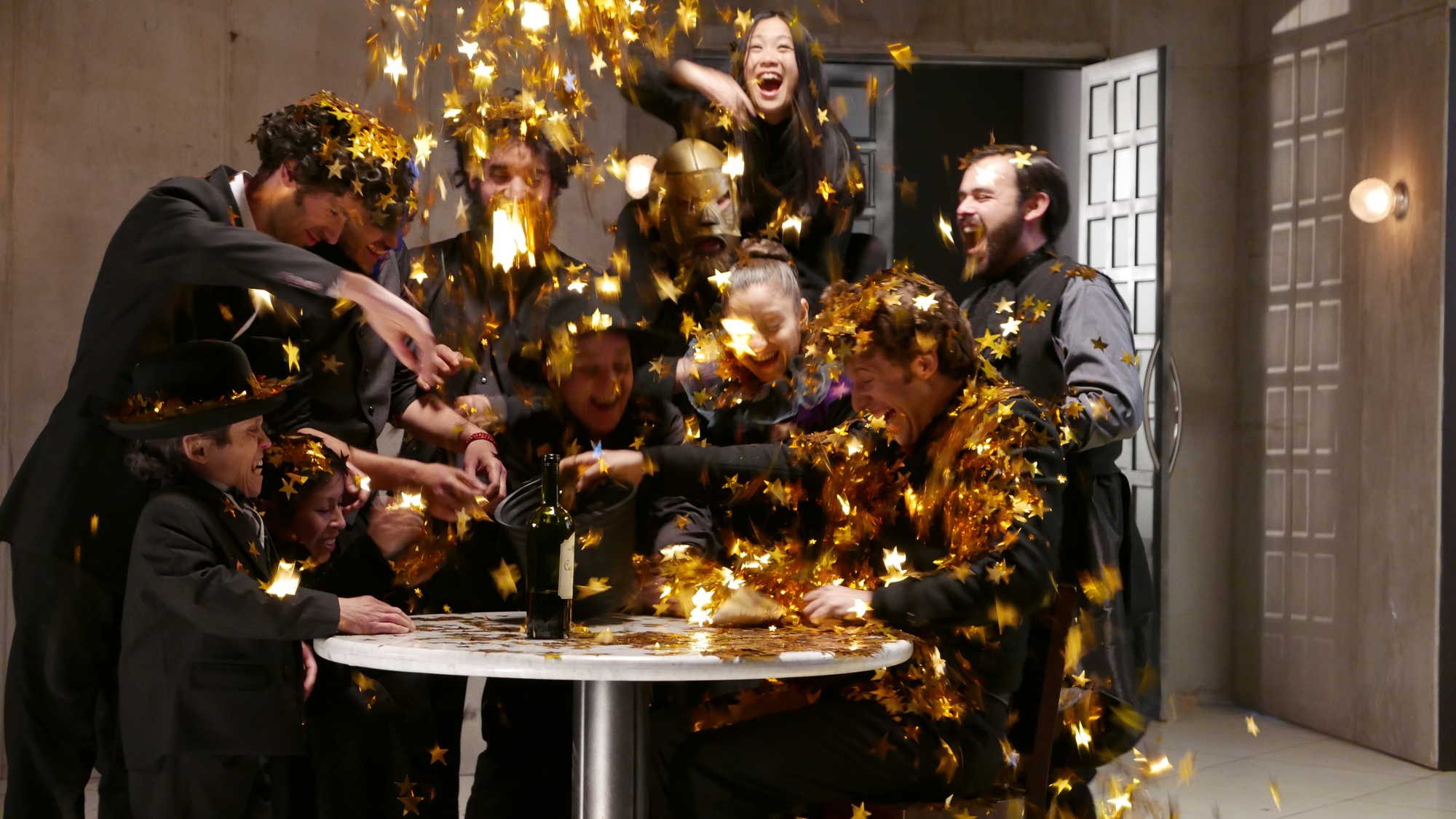Jul 26, 2016 Film & TV
Above: Endless Poetry.
The first time, and until yesterday the only time, that a bike of mine was stolen, I was at the film festival, watching Norte, The End of History. Lav Diaz’s five hour magnum opus reworks ideas from Crime And Punishment, particularly through the character who drives himself mad by deliberately flouting the standards of law and decency that he has decided he can’t believe in. It’s a grand film and, given how few people are willing to spend five hours watching someone go insane, not one that I expect to see ever again on the big screen: the experience was well worth a bike.
More from David Larsen’s Film Festival blog:
- Part one: All the things that don’t get said
- Part two: Happy Days
- Part three: Innocence of Memories, A Perfect Day, Fire at Sea and more
Yesterday, while the bike I bought to replace that bike was being stolen, I was at the film festival, watching Chimes At Midnight. I first saw Orson Welles’s great adaptation of Shakespeare’s Falstaff plays as a child, when my parents took me to it; years later I saw a degraded and almost unwatchable print at a Wellington film society screening. The new digital print is a wonder — so splendid to see it on the huge Civic screen, where you can take in all the details. The way Welles uses deep focus to create the ordered black and white majesty of the world Falstaff disrupts! And the way his basso profundo reverberates on the furthest edge of clarity when it has a proper sound system serving it! (The thing I most strongly remember from that second Wellington screening is the loss of most of his lines to an inadequate subwoofer). I’ve waited decades for this film to get the screening it deserves. Again: well worth a bike.
I’ve waited decades for this film to get the screening it deserves.
Here’s a thing though. Lav Diaz’s film shows us someone deliberately setting out to break the law, by, among other things, commiting theft. Falstaff is a thief and a rogue; one of the most joyful scenes in Chimes At Midnight is his raid on a party of pilgrims, where he loses all his takings to a counter-raid staged by the young reprobate prince Harry, who will later betray him and break his heart by becoming a great king. I saw the first of these films on the second Monday of the film festival in 2013. I saw the other on the second Monday of this year’s festival. Are bike pinchers following me round, waiting for second film festival Mondays on which I happen to watch films about thieves?
“My brain has started to try and join connecting lines between all the films”, said a friend of mine last night, in an email about some of the ridiculously many films she and I are trying to keep track of this fortnight. “Yes!” I replied. “Mine too! I keep wanting to write about the connections and then I remember that THEY ARE RANDOM AND MEANINGLESS”. Actually this is not quite true. It should not surprise me that so many of the 40 films I’ve watched so far this festival (I just drop that nice round number in there casually) have been about fathers and sons. Great recurrent human themes will recur; and I’m a father and a son, and my own father is dead, and for these reasons I tend to see fathers and sons even when I’m looking at, for instance, a tough Danish sergeant gradually warm up to a brave young German prison of war. Never mind when I’m looking at the adult sons of a Romanian family as they talk around the fact that neither of them wants to wear their dead father’s suit for the memorial dinner, even though their mother insists someone has to. And then Viggo Mortensen turns up playing the uber-patriarch as renaissance man-meets Iron John, with one dutiful son and one resentful one. And then there’s Falstaff and Harry.

So yes, experiencing the film festival as an extended seminar on paternal styles and filial longings is not completely ridiculous. (Even though Viggo Mortenson also has daughters.) But bridges? I swear to heaven, bridge metaphors had become a binding theme of my festival even before Alejandro Jodorowsky sent the actor playing his younger self up onto a bridge in Endless Poetry, where he held a suicidal friend out over an unsurvivable drop, in order to teach her that she really did value life. (A little later in the film someone tells him not to burn his bridges.)
I swear to heaven, bridge metaphors have become a binding theme of my festival.
Bridges are beautiful, and great works of engineering, and it isn’t surprising that so many films take a moment to dwell on whichever bridge a character happens to live closest to; but the way these moments take on extra weight and meaning as they recur and chime against each other is something hard to describe, and specific to film festivals in my experience. Precisely because the meaning is subjective and self-constructed — impossible to share with anyone who hasn’t happened to see the same things over the same period — and precisely because the meaning is evanescent and liable to evaporate on serious consideration, it feels special. Actually it feels magical. The moment in Happy Hour when a character in the process of escaping a failed marriage looks up from her departing ship at a vast bay-spanning bridge, and the camera holds the shot for a long, mysterious time. The moment in Family Film where a family in the process of destroying their mutual bonds through inattention casually drive across a bridge on the way to the airport. There is no link between these scenes other than the one I’ve created by watching them a few days apart, and the second has no special weight within its film. But my experience of it will always be different for the way it’s linked to other nearby experiences. That is, these experiences of mine are meaningfully bridged.
Something like this happens every year at the film festival. It’s a vastly heightened version of the subjectivity of meaning, and it should serve as a clarifying rebuke to anyone who believes art contains absolute truths. Orson Welles and Lav Diaz do not care that someone stole my bike, but part of their value to me is how much help they offer in keeping a sense of perspective about it.
Films to rave about
So anyway: I have several new raves I wish to deliver. They will be a little truncated, because it turns out I need to go into town earlier today than planned. (Something about buying a new bike.) Also, it’s occurred to me that I’m not even getting to half the films at this festival – and anyway, meaning is subjective, I read that somewhere – so it might be useful to get the top film recommendations of a few other people who are getting to high numbers of festival screenings. Seven cinephile friends have kindly provided lists.

Rave: A Quiet Passion. Just don’t miss this. Did I say something about not finding I could fully respond to Terence Davies’s Sunset Song? This — which he also directed — was the film that crept up and mugged me and left me open-mouthed and bereft as the credits rolled. (As Sunset Song did, I should add, for many people). Anchored by a staggering performance from Cynthia Nixon (Cynthia Sex and the City! Nixon) as Emily poet-least-likely-to-feature-on-Sex-and-the-City Dickinson, it’s a masterclass in how to convey the richness and unfathomable depths of an outwardly calm and uneventful life.

Sieranevada. An astonishment of carefully ordered chaos. For three very short hours — actually the first one feels slow, though far from dull, and then you dissolve into the situation — the members of an extended Romanian family attempt to hold a memorial dinner for their recently deceased father. Everything goes wrong. The camera roams ceaselessly in long sinuous takes, as characters criss-cross through a cluttered apartment, arguing and talking and crying and fuming, and by the end you will know them the way we know our own families. Very, very funny, in a dry, savagely insightful way; also compassionate and complex and strange. One of my best surprises this festival.

Endless Poetry. I seem to remember saying, a few blog posts ago, that Pablo Nerrain’s Neruda is as far from boring as it’s possible for a film to be. If anyone was going to complicate that position for me, it would be Alejandro Jodorowsky; and sure enough. This film is insane. (It also happens to feature a scene in which Jodorowsky’s younger self defaces a statue of Pablo Neruda). If you’ve ever used the term “magic realism” to describe something which was merely rather beyond the usual range of logic, here is your lesson in the true marriage of the magical and the real.
This film is insane…here is your lesson in the true marriage of the magical and the real.
In the course of Jodorowsky’s deeply felt recounting of his life as a young man first attempting to live as an artist, so many strange things happen that in places they actually do start to become a little dull. (You can’t keep pulling revelation out of your pocket, a diminishing returns effect kicks in.) But do not mistake this for a major criticism. The only other film I’ve seen that was remotely like this was also by Alejandro Jodorowsky, and if you don’t know him, I suggest you correct that quickly. He’s 87, and no one lives forever. A point he makes himself, in one of several scenes where he enters the film in his own person, to argue with and give counsel to his younger self: and these scenes on their own are worth ten perfectly decent ordinary memoir films.
Top film lists. I asked a small group of friends, all in the middle of going to more films than their lives really have room to contain, to list the ones they’ve seen so far that they loved. Some ranked their lists; these ones are numbered. In no particular order (actually, in the order in which they happened to reply to me), here they are.
Darren Bevan
Under The Shadow
Weiner
Notes On Blindness
Everybody Wants Some!!
Swiss Army Man
Suburra
Green Room
Perfect Strangers
Lovesong
Annabel Gooder
Poi E
Things to Come
Girls’ POV: NYICFF Retrospective
Wide Open Sky
Fatima
Love Song
Certain Women
Simon Wilson
1. Poi E
2. The Salesman
3. The Handmaiden
4. Tomorrow
5. Weiner
6. The Road
7. Sunset Song
8. The Rehearsal
Raff Kingsbury
1. Sieranevada
2. The Death of Louis XIV
3. A Perfect Day
4. A Quiet Passion
5. Aquarius
6. Fire at Sea
7. Sunset Song
8. Indie LA
9. Certain Women
10. A Dragon Arrives!
Jacob Powell
1. Kate Plays Christine
2. Radio Dreams
3. Toni Erdmann
4. Poi E
5. A Dragon Arrives!
6. I, Daniel Blake
7. The Rehearsal
8. Long Way North
9. Green Room
10. Certain Women
Steve Austen (top 4 are in order)
1. Chimes At Midnight
2. Toni Erdmann
3. Swiss Army Man
4. Weiner
The Handmaiden
Under The Shadow
Poi E: The Story Behind Our Song
Hugh Lilly
1. The Handmaiden
2.McCabe and Mrs Miller
3.Toni Erdmann
4.The First Mondayin May
5.Sunset Song





